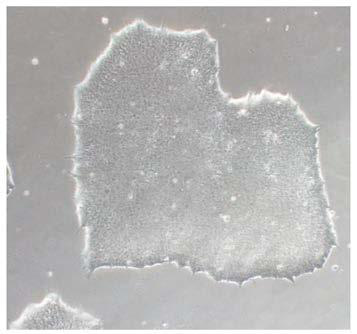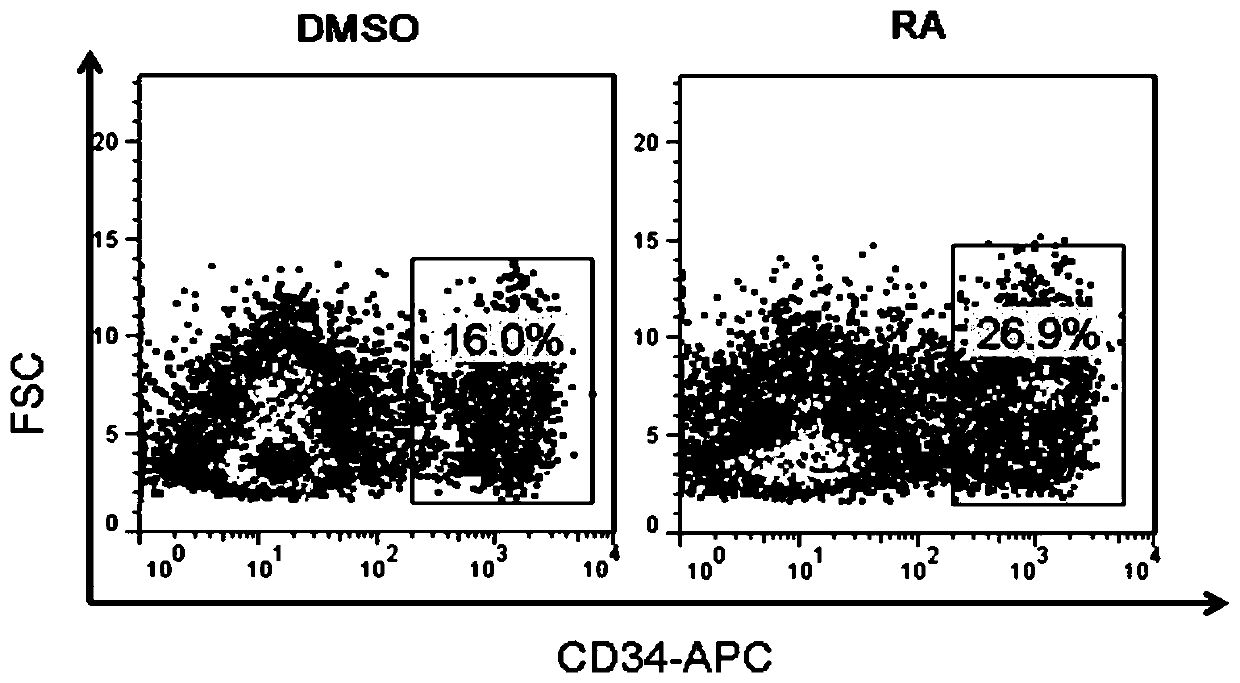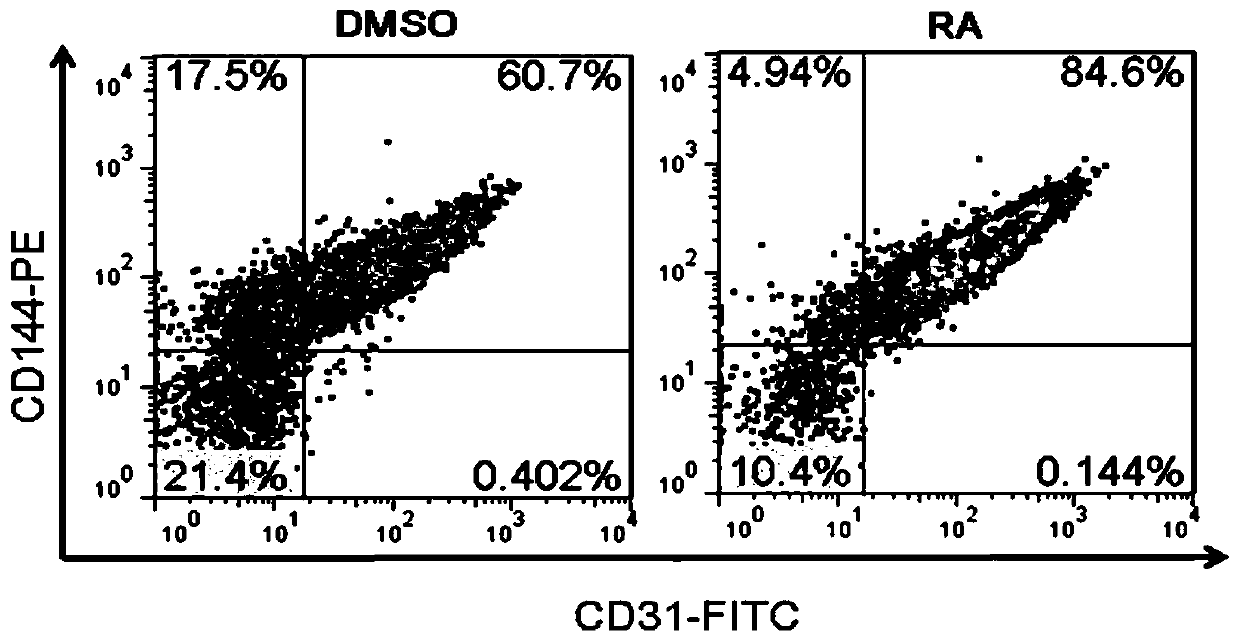Method for promoting directional differentiation of human multipotent stem cells into endothelial cells
A technology of human pluripotent stem cells and endothelial cells, which is applied in the field of promoting directional differentiation of human pluripotent stem cells into endothelial cells, which can solve the problems of low differentiation efficiency, unsuitability for large-scale cultivation and differentiation of endothelial cells, and high cost, so as to eliminate various factors interference, convenient and fast differentiation process, and reliable differentiation results
- Summary
- Abstract
- Description
- Claims
- Application Information
AI Technical Summary
Problems solved by technology
Method used
Image
Examples
Embodiment 1
[0032] Example 1: Inducers of Directed Differentiation and Small Molecular Compounds
[0033] Induced factors: CHIR99021, the effect concentration is 6μM; basic fibroblast growth factor (bFGF), the effect concentration is 100ng / μl; vascular endothelial cell growth factor (VEGF), the effect concentration is 50ng / μl; bone morphogenic protein 4 (BMP4), the effect Concentration 25ng / μl;
[0034] Small molecular compound: retinoic acid (RA), the concentration of action is 1 μM.
Embodiment 2
[0035] Example 2: Culture and passage of embryonic stem cells
[0036] On Matrigel-coated culture dishes, use PSeasy-E8 medium to culture human embryonic stem cells (hESCs). When the confluence of the cells reaches 80% and above, remove the medium, add DPBS to wash once; Incubate in a stable incubator for 3-5 minutes; suck off the digestion solution, immediately add fresh PSeasy-E8 medium, fan the bottom of the culture dish with a pipette gun to make the cell colony attached to the bottom of the dish fall off, gently and slowly blow and mix uniform. Then transfer the cells to a new Matrigel-coated cell culture plate at a ratio of 1:8 or 1:10, and use Pseasy-E8 medium for subculture, and add 10 μM ROCK to the medium for the first 24 hours after subculture. -I(Y27632), then replace with new culture medium every day until the next passage.
[0037] The undifferentiated human embryonic stem cells were photographed under an inverted fluorescence microscope, and the results were a...
Embodiment 3
[0038] Example 3: In vitro directed differentiation of endothelial cells
[0039] Continue culturing with PSeasy-E8 medium until the density is 95%-100%, then replace the differentiation medium for induction. The differentiation medium is CDM3 (containing RPMI Medium 1640 basal medium, double antibody, bovine serum albumin and ascorbic acid).
[0040] Retinoic acid treatment group (RA group): Day 0 was recorded from the time of induction, and 6 μM CHIR99021 was added during the first two days of differentiation (day 0-day 1). On day 2, the medium was replaced with CDM3 and 50 ng / ml bFGF and 1 μM RA were added. From the 3rd day to the 5th day, the culture medium was changed to CDM3 supplemented with 50ng / ml VEGF and 25ng / ml BMP4. On the 6th day, it was digested with 0.1% trypsin or Accutase, and then inoculated into Gelatin-coated 60mm culture dishes for 3-4 days, and the culture medium was replaced with ECM.
[0041] Control group (DMSO group): the culture process was the sam...
PUM
| Property | Measurement | Unit |
|---|---|---|
| concentration | aaaaa | aaaaa |
Abstract
Description
Claims
Application Information
 Login to View More
Login to View More - R&D
- Intellectual Property
- Life Sciences
- Materials
- Tech Scout
- Unparalleled Data Quality
- Higher Quality Content
- 60% Fewer Hallucinations
Browse by: Latest US Patents, China's latest patents, Technical Efficacy Thesaurus, Application Domain, Technology Topic, Popular Technical Reports.
© 2025 PatSnap. All rights reserved.Legal|Privacy policy|Modern Slavery Act Transparency Statement|Sitemap|About US| Contact US: help@patsnap.com



